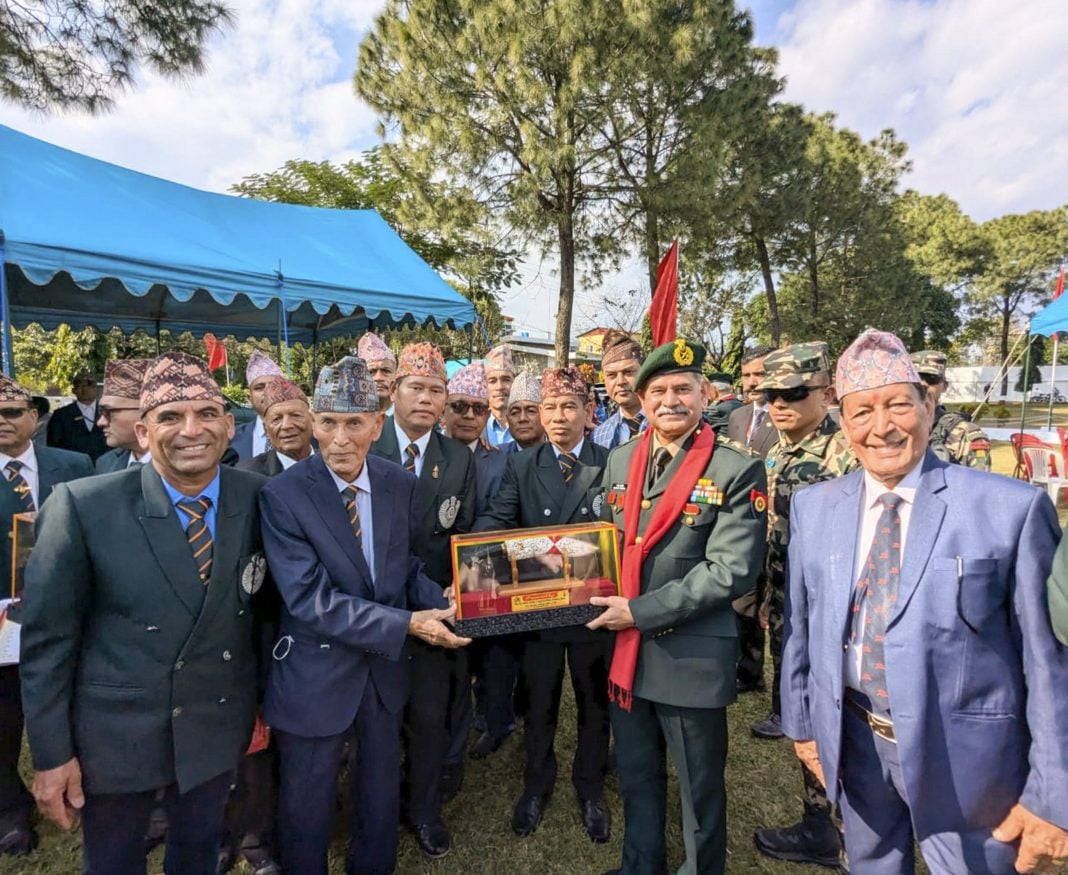Chief of the Army Staff General Upendra Dwivedi has successfully concluded a five-day official visit to Nepal aimed at reinforcing the bilateral relationship between the two nations. Despite the productive discussions during the trip, there remains uncertainty regarding the resumption of soldier recruitment from Nepal into the Indian Armed Forces, a process that has been on hold for four years.
An official statement highlighted that the visit not only met but exceeded all expected objectives, further enhancing the strong defense cooperation, cultural ties, and mutual respect shared by India and Nepal. The statement reaffirmed both nations’ commitment to maintaining peace, security, and partnership in the region.
During his tour, General Dwivedi engaged in discussions with key figures in Nepal, including President Ramchandra Paudel, Prime Minister KP Sharma Oli, Defense Minister Manbir Rai, and his counterpart, General Ashok Raj Sigdel. Importantly, there were no official reports or statements regarding the future of Gorkha soldier recruitment, despite it likely being a topic of discussion.
Reports suggested that Prime Minister Oli emphasized the need for deepened bilateral cooperation and the expansion of ties. General Dwivedi’s visit took place amid strains in Indo-Nepal relations and increasing Chinese influence in Nepal, following recent talks held by the Director-General of the Shashtra Seema Bal, which is responsible for guarding the Indo-Nepal border.
The recruitment of soldiers from Nepal has been suspended since the onset of the Covid-19 pandemic in 2020, compounded by the introduction of the Agniveer scheme in 2021. This scheme allows new recruits to serve for four years, with only 25% being absorbed into permanent service, a condition Nepal has contested due to concerns over its compatibility with the 1947 tripartite agreement between India, Nepal, and Britain. Nepal has also raised issues regarding the re-employability of Gorkha soldiers after their four-year term.
Throughout his visit, General Dwivedi participated in several significant activities, including a briefing by the Nepali army’s Director-General of military operations, addressing officers at the Nepali Army Command and Staff Course, and taking part in an ex-servicemen’s rally. As a gesture of goodwill, General Dwivedi was conferred the honorary title of General of the Nepali army, a title also granted to Nepali army chiefs by India.
Although discussions on recruitment from Nepal would have likely occurred during his meetings with Nepal’s leaders, there was a conspicuous absence of comments or resolutions regarding this issue. The presence of approximately 32,000 Nepali soldiers currently serving in the Indian Army underscores the importance of this topic, both historically and socio-economically for Nepal. Since 2020, nearly 15,000 Gorkha troops have retired without being replaced, leaving significant gaps in operational battalions. Traditionally, the annual recruitment from Nepal has ranged between 1,500 to 1,800, and this decline is expected to persist as more soldiers reach retirement.
Historically, the composition of Gorkha battalions has shifted, with Nepal-domiciled soldiers making up 90% of the troop strength at Independence, compared to the current ratio of 60:40 in favor of Nepali soldiers. In light of the current recruitment freeze, military discussions have proposed gradually reducing the number of Gorkha battalions while increasing the intake of Indian-domicile Gorkhas.
The Indian Army’s Gorkha Brigade consists of 39 Gorkha Rifles battalions organized into seven regiments with a rich history dating back to April 1815 when the first Gorkha Rifles were formed by the East India Company. The Gorkha troops and their integration into the Indian Army have been a pivotal aspect of the enduring ties between India and Nepal.
Indo-Nepal relations are deeply rooted in shared economic, social, and cultural affiliations, with military cooperation being a crucial component. The Nepal-India Bilateral Consultative Group on Security Issues regularly facilitates discussions on security matters. India has actively assisted Nepal in modernizing its military through equipment provision, training, and joint exercises, including supplying helicopters, rifles, and other military hardware.
In recent years, however, the traditionally strong Indo-Nepal ties have been challenged by growing Chinese political and military interests in the region. This development follows a territorial dispute over a small stretch of the international border at the trijunction of India, Nepal, and China, alongside reports of Chinese military delegations visiting Nepal and the supply of military resources to the Nepali army. Furthermore, Nepal’s involvement in China’s Belt and Road Initiative raises additional concerns regarding the shifting geopolitical dynamics in this strategically significant region.





